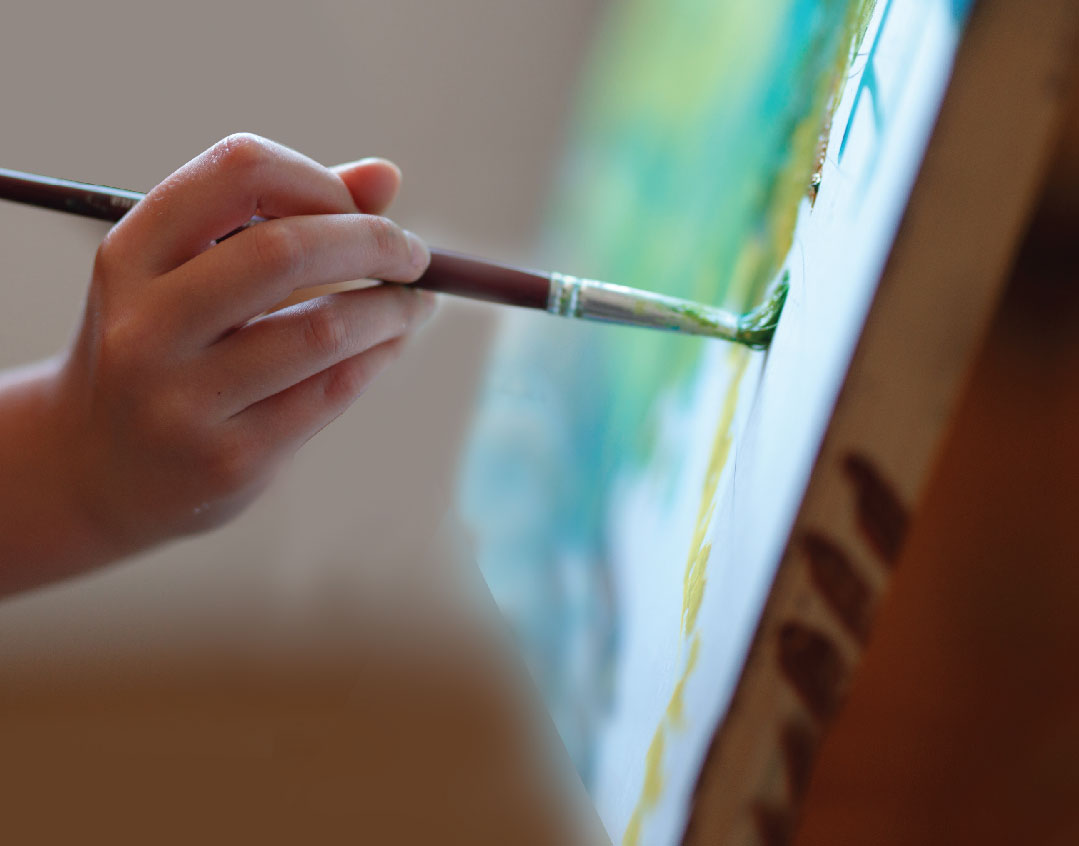Broad Strokes
| April 10, 2019Shmuel was still laughing when they left the office. “Women on a kevarim tour! Forget Dial-a-Segulah. Need a yeshuah? Visit the Pnei Yehoshua!”

“H
ey, Shmuel.”
Mordechai turned to the next cubicle. “That was Meir Shertzer.”
“What’d he want?”
“Get this. He’s arranging a tour for women.”
“Women? Isn’t he the graves guy?”
Mordechai shrugged. “Says he has a lot of interest. Women are requesting it.”
“You’re kidding. If my wife was going away for a week, it wouldn’t be to kevarim in Europe, I’ll tell you that much.”
“Mine either. But what do I know? He sends me business, I take business.”
Shmuel laughed. “Those women send him business, he’ll take it.”
Shmuel was still laughing when they left the office. “Women on a kevarim tour! Forget Dial-a-Segulah. Need a yeshuah? Visit the Pnei Yehoshua!”
Mordechai’s smile vanished when he reached the house. He could hear the baby shrieking from the driveway. Sarah would be in the studio, painting, music blasting to help her channel her art.
Mordechai headed straight to Shuey’s room. The baby was lying in his crib, howling, tears pouring down his cheeks. How long had he been there? Mordechai took him out, changed his diaper, and made him a bottle.
He looked at his watch. Two thirty. He had a half hour until the first school bus came. If he was quick, he could pick up the kids’ pajamas and wash the dishes. Maybe even throw in a load of laundry. But he looked down at Shuey, who was still heaving. The poor kid wasn’t held enough.
Mordechai sat on the couch and held him as he drank his bottle. He thought about the promise Sarah had made to him while they were dating. “Leave the dishes overnight? Never! Who wants to wake up to yesterday’s dirty dishes? I’d never, ever leave dishes overnight. I like things to be very clean.”
He remembered the first time she had sheepishly broken that promise. It was the week after sheva brachos and their supper had lingered until midnight, as they got to know each other while solving the world’s problems. He’d laughed then. He wasn’t laughing now.
He was fine with leaving dishes overnight. And he was okay with a bad day, philosophical about how a messy playroom meant they were blessed with children and toys to keep them happy. An overflowing laundry basket meant the same thing.
But this was different. Mordechai put Shuey down and went to find Sarah. He hoped she wouldn’t keep him long; there was so much that needed to be done.
“Sarah?” he asked tentatively. There was no telling how she’d react.
She didn’t answer. Was she deliberately ignoring him, or just too engrossed in her work?
He stepped closer. Even half finished, the painting was incredible. Maybe this would be it. She’d paint it out and come back to normal.
Mordechai closed the door quietly and went upstairs, contemplative, until buzzing from his phone brought him back to reality. He didn’t even have time to glance at the messages coming in. He ran into the bathroom, gathered the clothing from the hamper and took it to the laundry room.
He dumped all the stuff in the washing machine, knowing that in the old days, Sarah would have reproached him for not separating lights and darks, for not spraying stains, for overstuffing the machine. Well, he couldn’t help it. You want the laundry done properly, do it yourself. He ran back to Shuey, scooped him up, and went outside to wait for the bus.
It was after nine by the time he was able to go into his study to check his messages. Supper had been macaroni and cheese. “Again?” the kids had whined.
“This is what Mommy had time to make.”
Oops! We could not locate your form.












